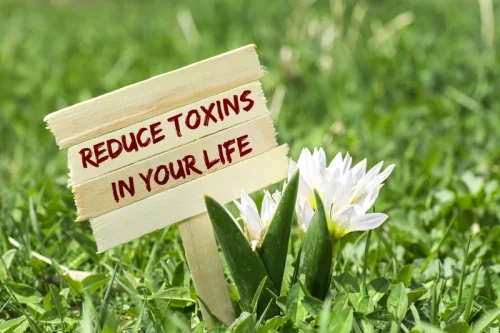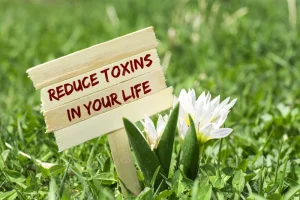Alcoholism & Anger Management: Mental Health & Addiction

We might also misread social cues and lash out in response to perceived slights, nonexistent threats, or frustrations. Even if they direct these emotions toward themselves, their emotional state can affect yours. Try to remember this isn’t necessarily a situation they chose to be in. It’s equally important to explore the habits and reasons behind your drinking, ideally with a qualified therapist. Some folks assume that people showing signs of this syndrome are about to relapse and drink again, but this isn’t always the case.
ALCOHOLIC RAGE SYMPTOMS

Sometimes the shame of facing the things they did while intoxicated causes them to start drinking again, proliferating a vicious circle of substance use and abuse. Many people with alcohol use disorder hesitate to get treatment because they don’t recognize that they have a problem. An intervention from loved ones can help some people recognize and accept that they need professional help. If you’re concerned about someone who drinks too much, ask a professional experienced in alcohol treatment for advice on how to approach that person. Alcohol use disorder is a pattern of alcohol use that involves problems controlling your drinking, being preoccupied with alcohol or continuing to use alcohol even when it causes problems. This disorder also involves having to drink more to get the same effect or having withdrawal symptoms when you rapidly decrease or stop drinking.
- And all too often, as in Ryan’s case, it reflects displacement, directing anger toward a target that is not the source of an individual’s original anger.
- Treatment centers should ideally have rigorous and reliable screening for substance use disorders and related conditions.
- Crystal Raypole has previously worked as a writer and editor for GoodTherapy.
- When they aren’t under the influence, you can try speaking openly with them about how their actions make you feel, how they’re affecting your family and why something needs to change.
How to find support for anger and alcohol misuse
Mental rigidity and alcohol consumption have been explored as contributing to domestic violence. One such study included 136 men with a history of intimate partner violence (IPV) (Estruch, 2017). The individuals who had higher mental rigidity had lower empathy and alcoholic rage syndrome perception of the severity of IPV.

Alcohol recovery and anger management co-treatments
- Alcohol can fuel rage or aggressive behaviors even when a person isn’t intoxicated.
- Self-awareness is important for everyone’s mental health, but it is especially necessary for people with AUD and anger issues.
- It’s intended to provide you with the desire and physiological ability to fight back against a threat.
- Disulfiram (Antabuse), acamprosate (Campral), and naltrexone are the most common medications used to treat AUD.
- Clients can learn healthy stress management and coping skills to diffuse anger and other negative thoughts in group and individual therapy sessions.
You might want to participate in treatment with your loved one whenever possible, but it’s also wise to talk to a therapist on your own. This is especially the case if specific behaviors or mood symptoms affect your day-to-day life. Maybe they slipped up and had a drink after several months of sobriety. These behaviors and emotional concerns can strain your relationships and interactions with others, especially if alcohol use has already had a negative impact on your relationships.

If you become a crazy drunk person when you’re drinking, and you drink often, it’s probably safe to say you’re an alcoholic. Unfortunately, quitting something that’s become an addiction isn’t as easy as simply making the decision to stop. Alcohol effects the prefrontal cortex of the brain, the region that moderates things like decision-making. What this means is that people whose personalities make them naturally https://ecosoberhouse.com/ quicker to become angry than others are even more likely to lose control under the influence of alcohol. Anyone who’s lived with an alcoholic parent, partner or other close family member understands all too well what happens when their loved one’s personality changes suddenly as soon as they have a drink or two. Suddenly, the person they know and care for is a much different, angrier person — short-tempered, abusive and often violent.
Why Are Alcoholics So Mean To The Ones They Love?
Many people whose behavior changes drastically with drinking have a hard time believing it when they’re sober. But the best choice for you and the people around you is to enter treatment and work to become a better person. Alcohol factors into nearly a third of all murders in the United States. Plus, alcohol-related rage and aggression are tied to intimate partner violence, verbal and physical abuse, sexual assault, violent crimes, verbal and physical altercations, and more (1). Alcohol has a closer association with aggressive behavior than any other mind-altering substance, according to the World Health Organization (WHO). Violent behavior may occur in as much as 50% of people with alcohol use disorder (AUD).

You’ll meet millions of fellow Reframers in our 24/7 Forum chat and daily Zoom check-in meetings. Receive encouragement from people worldwide who know exactly what you’re going through! You’ll also have the opportunity to connect with our licensed Reframe coaches for more personalized guidance. The Reframe app equips you with the knowledge and skills you need to not only survive drinking less, but to thrive while you navigate the journey. Our daily research-backed readings teach you the neuroscience of alcohol, and our in-app Toolkit provides the resources and activities you need to navigate each challenge. In other words, we’re likely to do things — including giving others an earful as soon as we feel irked — without thinking about the potential fallout.
